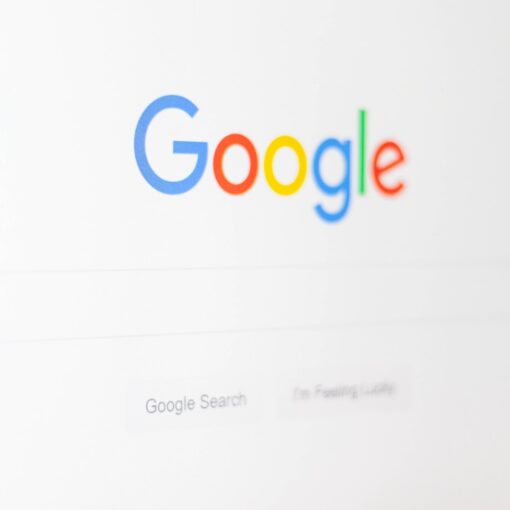 1. H1 HTML Tags – Search Engines often put a lot of Weight on the keywords located in the H1 tag. If your site does not have an H1 tag, it would be worth adding.
1. H1 HTML Tags – Search Engines often put a lot of Weight on the keywords located in the H1 tag. If your site does not have an H1 tag, it would be worth adding.
2. Keyword Weights – It’s a common mistake with SEO to make a site sound ‘spammy’, or unreadable because of adding too many keywords. According to current standards, a good rule is not to have keywords greater than 6 percent and no less than 1 percent, and remember, no optimization should ever override user experience.
3. Domain Name- The domain name choice with the keywords you use makes a difference with the search engines. If a site is about puppy care, it helps to have the keywords ‘puppy care’ in the domain name. It also makes a difference with your URL(web address), and that’s why you see things like ‘yourdomainproduct.c0m/puppy-care-with-new-born.ht..’, instead of just ‘/page.html’.
4. Page Title- On your pages, using keywords in the title does make a difference, but again, you don’t want the page title to sound WEIRD.
5. Image Alt Tags- Keywords for the page you create should always be placed in the alternative text to make it more readable to the search engines.
The above is some of what are the top picks when building a website but is not to say that those are the only rules for good SEO or search engine optimization, nor do they all have to be strictly enforced. If your site name, for example, is without keywords, it’s still ok, but these are tips for maximum optimization.
Google also looks at several other factors as well.
Some of the biggest mistakes when advertising on the internet are:
Internet advertising is now part of the business world. What I mean is it works just like offline businesses in the way that it’s location, location, location. Right now, the internet is where people are gathering(over 1/3 of their waking time). Still, many businesses see advertising on the NET and assign it with little value because it’s not tangible, and they refuse to validate it’s business potential to increase revenue.
When companies start an advertising campaign, they assume it works like offline advertising and manage it in ways that wash them away in a pool of all but non-existent listings that prove unsuccessful. Below are a few misconceptions about internet advertising.
1- Build it, and they will come-Fail. For internet marketing, like the movie Field of Dreams, there is a beautiful story about hope with a playing field where suddenly a baseball team appeared. If you depend on this happening with a business strategy, you need to rethink it a bit.
2- Online Advertising can not produce revenue for local business-Fail. This concept will actually make a business profile look less than operational these days. One of the local Omaha businesses I affiliate advertises for receives hundreds of calls each month with thousands of dollars in revenue. If I had a percentage of what they made, I probably would not be blogging right now (on an island somewhere).
3- I can find one online formula and my company will be number one-Fail. Several SEO(search engine optimization) and web design components are in an online business campaign. The tricks to get website traffic(appealing as they are) is usually junk traffic and will not produce results. You can either learn web design skills or hire someone, but using online marketing techniques is not to be taken for granted.
4- Businesses can buy a single page from a site and be ranked Partial Fail. A single page can produce some results, and it depends on how the web page is promoted, but many sites that offer single pages use poor SEO strategies that will not rank high on Google, MSN, and Yahoo so it is strongly suggested that you also have a website for your online business needs.
5- Businesses only need their name and number on the internet and people will find them-Major Fail. I see this in Omaha and other cities a lot, and look at those niches as an opportunity to promote a business and make those companies look like rock stars. Unless your company is the only one in town in your market(still may not be the best way), having just a name and number will be a miserable failure to your business strategy and potential revenue.
Suppose you are trying to spread the word in Omaha, Nebraska, smaller or larger cities. In that case, your advertising presence needs something that stands out from the rest of the other companies, and those companies that make those act silly when making poor decisions about their online marketing techniques WILL lose company revenue and customers to their competitors.
If you're anything like the hundreds of other digital entrepreneurs out there, you already know that dominating the top of Google's search engine results is important to your company's success. Given the amount of competition that exists, it might be challenging to distinguish oneself from the pack and emerge victorious. On the other hand, we do have some tried-and-true advice that is certain to improve your rating on Google!
The age-old practice of “keyword stuffing” involves cramming as many relevant keywords into an article as is physically feasible, regardless of whether or not the keywords make sense in the context of the overall message. This will ensure that your content is one of the first things visitors see whenever they conduct a search using those phrases.
Of course, it's possible that it won't make any sense and will come across as quite robotic. But, hey, who said that being eloquent was necessary for SEO?
Google may be compared to a huge library. Because it houses an extremely high volume of volumes, it may be challenging to track down the specific volume that one is seeking.
Google assigns a unique ranking number to each book in its database so that users may locate books more quickly. If your ranking number is high, there is a greater possibility that your book will be at the very top of the list.
Therefore, if you would like to improve your rating on Google, there are a few things you can do to accomplish this goal! First and foremost, check to see that your book has a large number of high-quality words—words that adequately convey both the subject matter of the book and how fascinating it is.
You may also invite a large number of people to read your book, and if they enjoy it, they can spread the word to their other circles of acquaintances. Finally, you should make an effort to get your book stocked on the shelves of some of the larger libraries (or websites), because this will greatly increase your position on Google.
And finally, but certainly not least: the creation of links!
Getting other websites to link back to your own is one step in the process of link building, which entails getting other websites to link back to yours. It's similar to social networking, but for websites! Imagine going to another website and saying, “Hey, I believe both of our websites would look fantastic if they were combined!” Building links between websites establishes associations between those websites, allowing visitors to be routed from one website to another. This is the main purpose of link building.
Be aware, though, that building links is not all fun and games. It requires a well-thought-out plan and knowledge of the best SEO techniques.
Do not forget the recommendations in this post if you would like to improve your website's rating on Google. Maintain your knowledge of the most recent trends in SEO, consistently produce high-quality material, and stay one step ahead of your rivals.
Remember that no matter how much time and attention you invest into optimizing your website, there will always be someone else capable of doing it more effectively elsewhere in the world. Don't get too caught up on the particulars; instead, concentrate on what works for you, and be sure to enjoy yourself while you're doing it!






